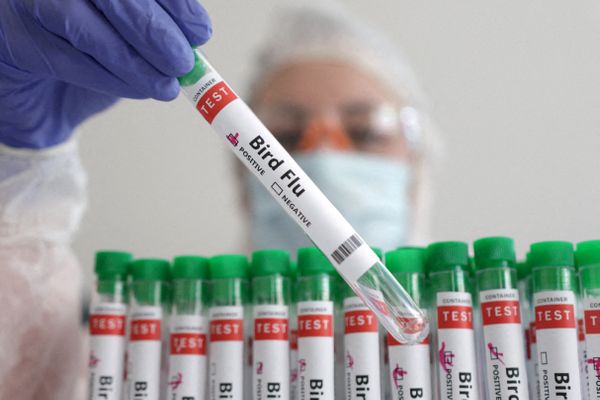GENEVA, July 29 — Bird flu vaccine developer Sinergium Biotech will share its data with manufacturers in low and middle-income countries to help to accelerate a fair rollout if a pandemic occurs, the World Health Organisation (WHO) said today.
The Argentine private sector biopharmaceutical company is at an early stage of developing mRNA vaccines against the H5N1 virus and has pledged to share its findings with a partner manufacturer network set up by the WHO at the peak of Covid-19 to help poorer countries gain access to life-saving medical tools.
Until now, the WHO has assisted partners but this is the first time one of them with a vaccine in development has volunteered to share it with others.
“Partners interested in this will be able to start getting their fingers wet, beginning to practise with an H5N1 candidate, so if a pandemic were to start ... they would already have the necessary tools in their facilities,” said Dr Martin Friede, head of the WHO vaccine research unit.
The WHO’s mRNA technology transfer hub programme includes manufacturers in 15 countries, though not all are fully established. Among those involved in the programme are Biovac in South Africa and Institut Pasteur in Senegal.
The South African centre was set up after global pharmaceuticals companies including Moderna and Pfizer declined to provide the technical know-how to replicate their Covid-19 vaccines, mainly owing to intellectual property concerns.
The outbreak of H5N1 in dairy cows and some farm workers in the United States prompted Washington to award US$176 million (RM816.5 million) to Moderna to advance development of its bird flu vaccine.
While the WHO has said the risk to the public from the avian influenza virus remains low and that it is not spreading between people, they said it has the potential to cause a future pandemic due to its widespread circulation in animals.
While Friede acknowledges the likes of Moderna and Pfizer could produce vaccines much more quickly than manufacturers in the WHO programme, he said the scheme would allow Sinergium’s partners to begin production reasonably quickly and help to keep poorer countries from being reliant on handouts.
There are vaccines available for the H5N1 strain that is spreading among cows in the United States, but they are mostly made using chicken eggs, which means they would take months to produce at scale if needed.
Sinergium’s mRNA flu vaccine has yet to be tested in people, the WHO said, so it would require human trials before use.
Moderna’s mRNA H5N1 flu vaccine is further advanced, with late-stage trials in humans expected to take place next year.
— Reuters


